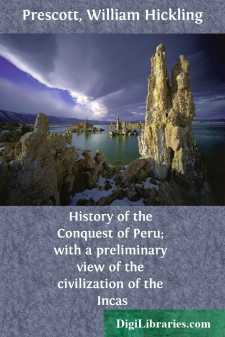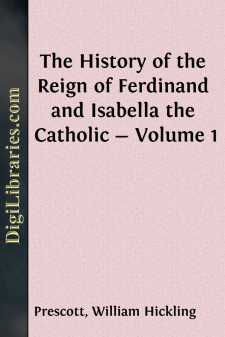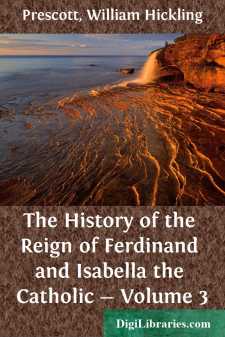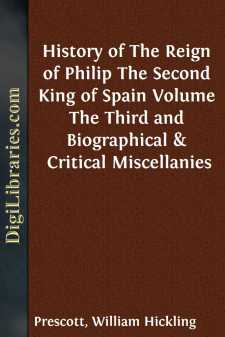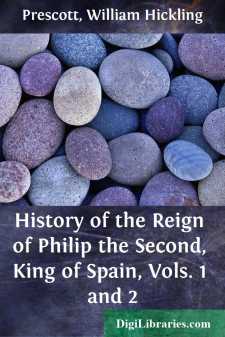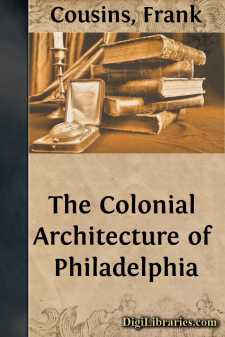Categories
- Antiques & Collectibles 13
- Architecture 36
- Art 48
- Bibles 22
- Biography & Autobiography 813
- Body, Mind & Spirit 142
- Business & Economics 28
- Children's Books 14
- Children's Fiction 11
- Computers 4
- Cooking 94
- Crafts & Hobbies 4
- Drama 346
- Education 46
- Family & Relationships 57
- Fiction 11829
- Games 19
- Gardening 17
- Health & Fitness 34
- History 1377
- House & Home 1
- Humor 147
- Juvenile Fiction 1873
- Juvenile Nonfiction 202
- Language Arts & Disciplines 88
- Law 16
- Literary Collections 686
- Literary Criticism 179
- Mathematics 13
- Medical 41
- Music 40
- Nature 179
- Non-Classifiable 1768
- Performing Arts 7
- Periodicals 1453
- Philosophy 64
- Photography 2
- Poetry 896
- Political Science 203
- Psychology 42
- Reference 154
- Religion 513
- Science 126
- Self-Help 84
- Social Science 81
- Sports & Recreation 34
- Study Aids 3
- Technology & Engineering 59
- Transportation 23
- Travel 463
- True Crime 29
History of the Conquest of Peru; with a preliminary view of the civilization of the Incas
Categories:
Description:
Excerpt
The great nobles of Peru were allowed, like their sovereign, a plurality of wives. The people, generally, whether by law, or by necessity stronger than law, were more happily limited to one. Marriage was conducted in a manner that gave it quite as original a character as belonged to the other institutions of the country. On an appointed day of the year, all those of a marriageable age - which, having reference to their ability to take charge of a family, in the males was fixed at not less than twenty-four years, and in the women at eighteen or twenty - were called together in the great squares of their respective towns and villages, throughout the empire. The Inca presided in person over the assembly of his own kindred, and taking the hands of the different couples who were to be united, he placed them within each other, declaring the parties man and wife. The same was done by the curacas towards all persons of their own or inferior degree in their several districts. This was the simple form of marriage in Peru. No one was allowed to select a wife beyond the community to which he belonged, which generally comprehended all his own kindred; *46 nor was any but the sovereign authorized to dispense with the law of nature - or at least, the usual law of nations - so far as to marry his own sister. *47 No marriage was esteemed valid without the consent of the parents; and the preference of the parties, it is said, was also to be consulted; though, considering the barriers imposed by the prescribed age of the candidates, this must have been within rather narrow and whimsical limits. A dwelling was got ready for the new-married pair at the charge of the district, and the prescribed portion of land assigned for their maintenance. The law of Peru provided for the future, as well as for the present. It left nothing to chance. - The simple ceremony of marriage was followed by general festivities among the friends of the parties, which lasted several days; and as every wedding took place on the same day, and as there were few families who had not some one of their members or their kindred personally interested, there was one universal bridal jubilee throughout the empire. *48
[Footnote 46: By the strict letter of the law, according to Garcilasso, no one was to marry out of his own lineage. But this narrow rule had a most liberal interpretation, since all of the same town, and even province, he assures us, were reckoned of kin to one another. Com. Real., Parte 1, lib. 4, cap. 8.]
[Footnote 47: Fernandez, Hist. del Peru, Parte 2, lib. 3, cap. 9. This practice, so revolting to our feelings that it might well be deemed to violate the law of nature, must not, however, be regarded as altogether peculiar to the Incas, since it was countenanced by some of the most polished nations of antiquity.]
[Footnote 48: Ondegardo, Rel. Seg., Ms - Garcilasso, Com. Real.,
Parte lib. 6, cap. 36. - Dec. de la Aud Real., Ms. - Montesinos,
Mem Antiguas, Ms., lib. 2, cap. 6.]
The extraordinary regulations respecting marriage under the Incas are eminently characteristic of the genius of the government; which, far from limiting itself to matters of public concern, penetrated into the most private recesses of domestic life, allowing no man, however humble, to act for himself, even in those personal matters in which none but himself, or his family at most, might be supposed to be interested. No Peruvian was too low for the fostering vigilance of government. None was so high that he was not made to feel his dependence upon it in every act of his life. His very existence as an individual was absorbed in that of the community. His hopes and his fears, his joys and his sorrows, the tenderest sympathies of his nature, which would most naturally shrink from observation, were all to be regulated by law. He was not allowed even to be happy in his own way. The government of the Incas was the mildest, - but the most searching of despotisms.
Chapter IV:
Education. - Quipus. - Astronomy. - Agriculture. - Aqueducts. -
Guano. - Important Esculents.
"Science was not intended for the people; but for those of generous blood. Persons of low degree are only puffed up by it, and rendered vain and arrogant. Neither should such meddle with the affairs of government; for this would bring high offices into disrepute, and cause detriment to the state." *1 Such was the favorite maxim, often repeated, of Tupac Inca Yupanqi, one of the most renowned of the Peruvian sovereigns. It may seem strange that such a maxim should ever have been proclaimed in the New World, where popular institutions have been established on a more extensive scale than was ever before witnessed; where government rests wholly on the people; and education - at least, in the great northern division of the continent - is mainly directed to qualify the people for the duties of government. Yet this maxim was strictly conformable to the genius of the Peruvian monarchy, and may serve as a key to its habitual policy; since, while it watched with unwearied solicitude over its subjects, provided for their physical necessities, was mindful of their morals, and showed, throughout, the affectionate concern of a parent for his children, it yet regarded them only as children, who were never to emerge from the state of pupilage, to act or to think for themselves, but whose whole duty was comprehended in the obligation of implicit obedience....


